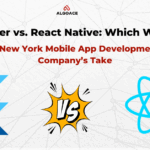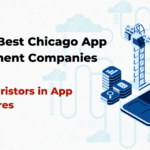
In today’s digital landscape, websites are continually exposed to the threats posed by sophisticated cyber-attacks. Cyber warfare, characterized by both focused and widespread hacking initiatives, creates significant challenges for businesses and their online operations. WordPress, a prominent content management system, is often targeted by these malicious activities. As a result, the role of WordPress development agencies in enhancing website security is crucial. By employing advanced strategies, these agencies strive to ensure the robustness of websites against cyber threats. This discourse will explore how WordPress development agencies, in collaboration with leading software development companies, can protect websites in the future from the adversities associated with cyber warfare.
Understanding Cyber Warfare in the WordPress Ecosystem
Cyber warfare involves the intentional actions of hackers aimed at disrupting, damaging, or illegally accessing websites and online platforms. The complexity of these threats is on the rise, employing artificial intelligence, machine learning, and automated tools. Common threats faced by WordPress websites include:
- DDoS Attacks: Flooding servers with excessive traffic to render the site inoperable.
- SQL Injection: Exploiting weaknesses to extract sensitive data.
- Malware Injection: Introducing harmful code into themes or plugins.
- Phishing Attacks: Deceiving users to obtain their login credentials.
To mitigate these threats, WordPress development agencies adopt proactive measures that address current vulnerabilities while anticipating potential future risks.
Key Strategies for Future-Proofing WordPress Websites Against Cyber Warfare
As cyber threats evolve in complexity, it is crucial to emphasize the security of your WordPress website. Implementing basic strategies to improve the durability and protection of your site will help fortify it against cyber-attacks, thereby safeguarding both your data and your users. Partnering with a social media marketing agency can also amplify your online presence while ensuring your site remains secure.
1. Implementing Advanced Security Plugins
The foremost defense mechanism for any WordPress website is comprised of robust security plugins. WordPress development agencies employ various tools, including:
- Wordfence: Offers real-time threat protection along with malware scanning features.
- Sucuri Security: Delivers firewall protection and continuous monitoring services.
- iThemes Security: Strengthens login security and conducts vulnerability assessments.
Through the appropriate configuration of these plugins, agencies create vital safeguards against common threats.
2. Prioritizing Regular Updates
One of the simplest yet most impactful strategies is to ensure that the WordPress core, themes, and plugins are kept up to date. Cybercriminals often exploit outdated software to gain access to websites. WordPress development agencies utilize automated update schedules to:
- Resolve known security vulnerabilities.
- Ensure compatibility with modern technologies.
- Reduce the likelihood of conflicts among plugins.
This proactive approach greatly diminishes potential vulnerabilities to cyber threats.
3. Embracing AI-Powered Threat Detection
Artificial Intelligence is transforming the field of cybersecurity by enabling the real-time prediction and identification of threats. Leading software development firms are incorporating AI-driven tools that can:
- Identify atypical user activities.
- Prevent potential DDoS attacks from intensifying.
- Examine logs for patterns that suggest hacking attempts.
For example, the integration of tools such as SecBI or Vectra allows websites to effectively respond to evolving cyber warfare strategies.
4. Enhancing User Authentication Mechanisms
Inadequate login credentials represent a prevalent security vulnerability. To address this issue, WordPress development agencies adopt the following strategies:
- Two-Factor Authentication (2FA): Introduces an additional security layer by necessitating a one-time code for access.
- CAPTCHA Systems: Deters automated brute-force attacks effectively.
- Single Sign-On (SSO): Facilitates secure access for enterprise-level websites.
The implementation of these measures greatly improves access control, thereby complicating unauthorized access attempts by hackers.
5. Leveraging Blockchain for Data Integrity
Blockchain technology provides a reliable method for data storage, guaranteeing the integrity of websites. WordPress development agencies are increasingly investigating its potential applications in:
- Decentralized Hosting: Minimizes the risk of single points of failure.
- Secure Transactions: Safeguards e-commerce platforms against fraudulent activities.
- Tamper-proof Logs: Effectively monitors all modifications to website content securely.
This innovative strategy promotes enduring resilience against advanced cyber threats.
6. Conducting Regular Penetration Testing
Simulating real-world attacks is an effective method for identifying and mitigating vulnerabilities. Leading software development firms and WordPress experts engage in the following practices:
- White-Hat Hacking: Conducting ethical tests to reveal weaknesses.
- Automated Vulnerability Scans: Quick evaluations of security deficiencies.
- Manual Code Reviews: Comprehensive examinations for concealed vulnerabilities.
These evaluations guarantee that websites maintain their security as the threat landscape continues to change.
7. Adopting Headless WordPress Architecture
Headless WordPress architecture decouples the front end from the back end, thereby minimizing the risk of potential security breaches. The advantages of this approach include:
- Reduced Attack Surface: There are fewer vulnerabilities for cybercriminals to exploit.
- Improved Performance: This setup leads to quicker page loading times and less downtime.
- Robust API Management: Access to sensitive information is effectively restricted.
As a result, WordPress development agencies are progressively advocating for this architecture for enterprise-level websites.
8. Educating Clients on Cyber Hygiene
Even the most secure websites are vulnerable to user negligence. WordPress development agencies play a crucial role in ensuring that clients adhere to best practices, which include:
- Frequent Password Updates: Promote the use of strong and unique passwords.
- Training on Phishing Awareness: Provide education on recognizing harmful links.
- Backup Strategies: Implement automated regular backups to facilitate swift restoration of websites following an attack.
By cultivating a culture of cybersecurity awareness, agencies enable clients to protect their digital assets effectively.
9. Utilizing Geofencing and IP Whitelisting
Limiting access according to geographical locations or designated IP addresses serves as an effective strategy to combat cyber warfare. WordPress development agencies adopt these practices to:
- Prevent dubious traffic from areas identified as high-risk.
- Restrict access to the admin panel to certain IP address ranges.
- Track and record all attempts of unauthorized access.
Such measures provide enhanced oversight regarding who is permitted to engage with the website.
10. Collaborating with Cybersecurity Experts
Future-proofing websites against cyber warfare necessitate a multidisciplinary strategy. Leading software development firms collaborate with cybersecurity experts to:
- Remain informed about emerging threats.
- Create bespoke security solutions designed to meet specific client requirements.
- Continuously monitor and react to attacks as they occur.
Such partnerships guarantee a robust and all-encompassing defense strategy.
The Role of WordPress Development Agencies in the Future of Cybersecurity
As cyber warfare continues to advance, the importance of WordPress development agencies is increasingly paramount. These agencies serve as a vital link between innovative technology, custom logo design, and its practical implementation, safeguarding the security and functionality of websites. Their expertise will expand in several key areas, including:
- AI-Enhanced Security Measures: Ongoing advancements in threat detection systems.
- Compliance with Global Data Privacy Standards: Modifying websites to align with GDPR, CCPA, and other relevant regulations.
- Adoption of Zero Trust Frameworks: Scrutinizing every access request to thwart unauthorized actions.
Conclusion
In the current era of cyber warfare, the protection of websites has evolved from a mere necessity to a fundamental obligation. WordPress development agencies and the best software development company are essential in strengthening websites against both current and impending threats. Their comprehensive strategies, which include the implementation of cutting-edge technologies and user education, contribute to the creation of secure and resilient web platforms.
By proactively addressing emerging threats and fostering continuous innovation, these agencies empower businesses to succeed in an increasingly digital and adversarial environment. Engaging such expertise transcends the realm of security; it is a crucial investment in the preservation of your online presence for the future.





0 Comments